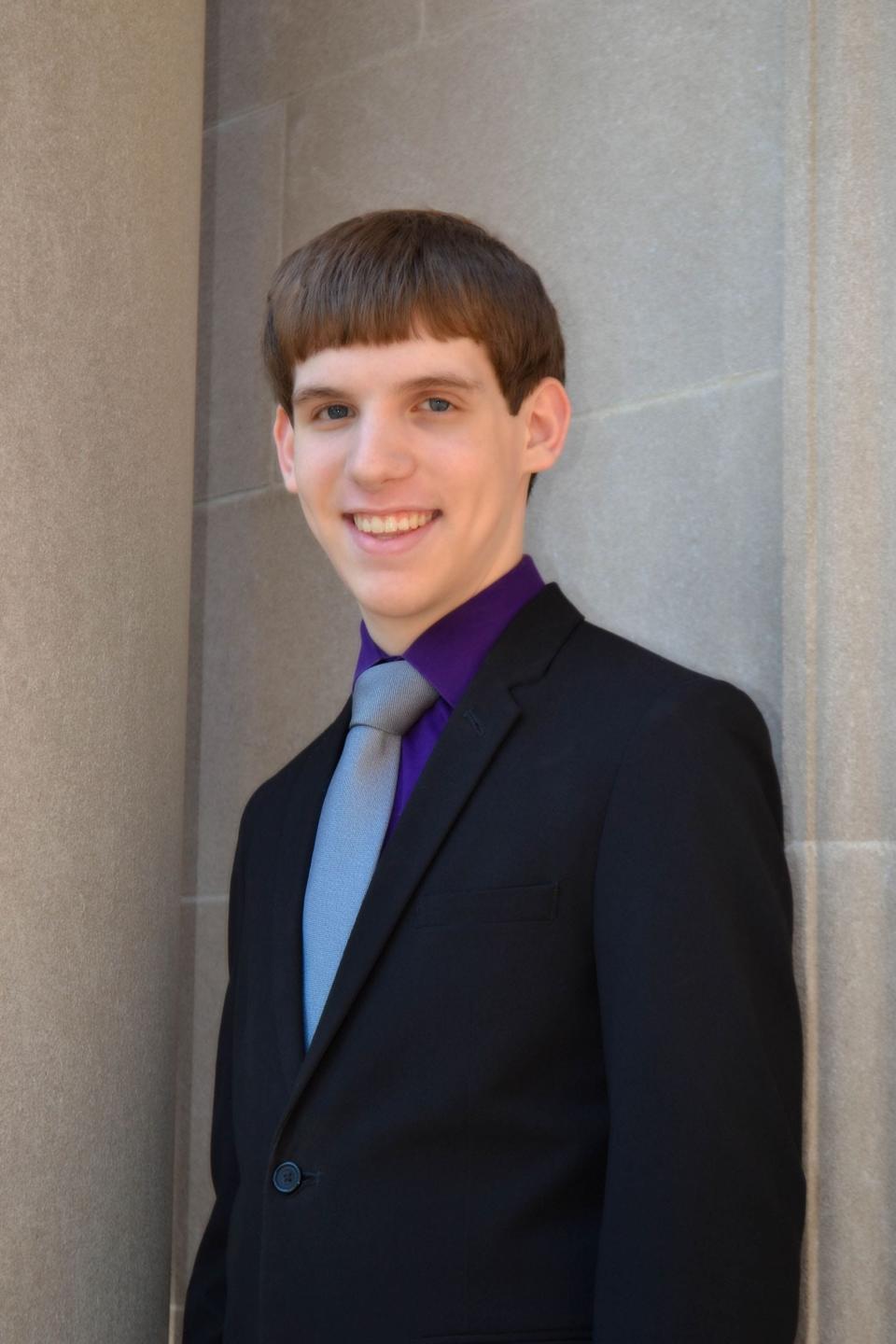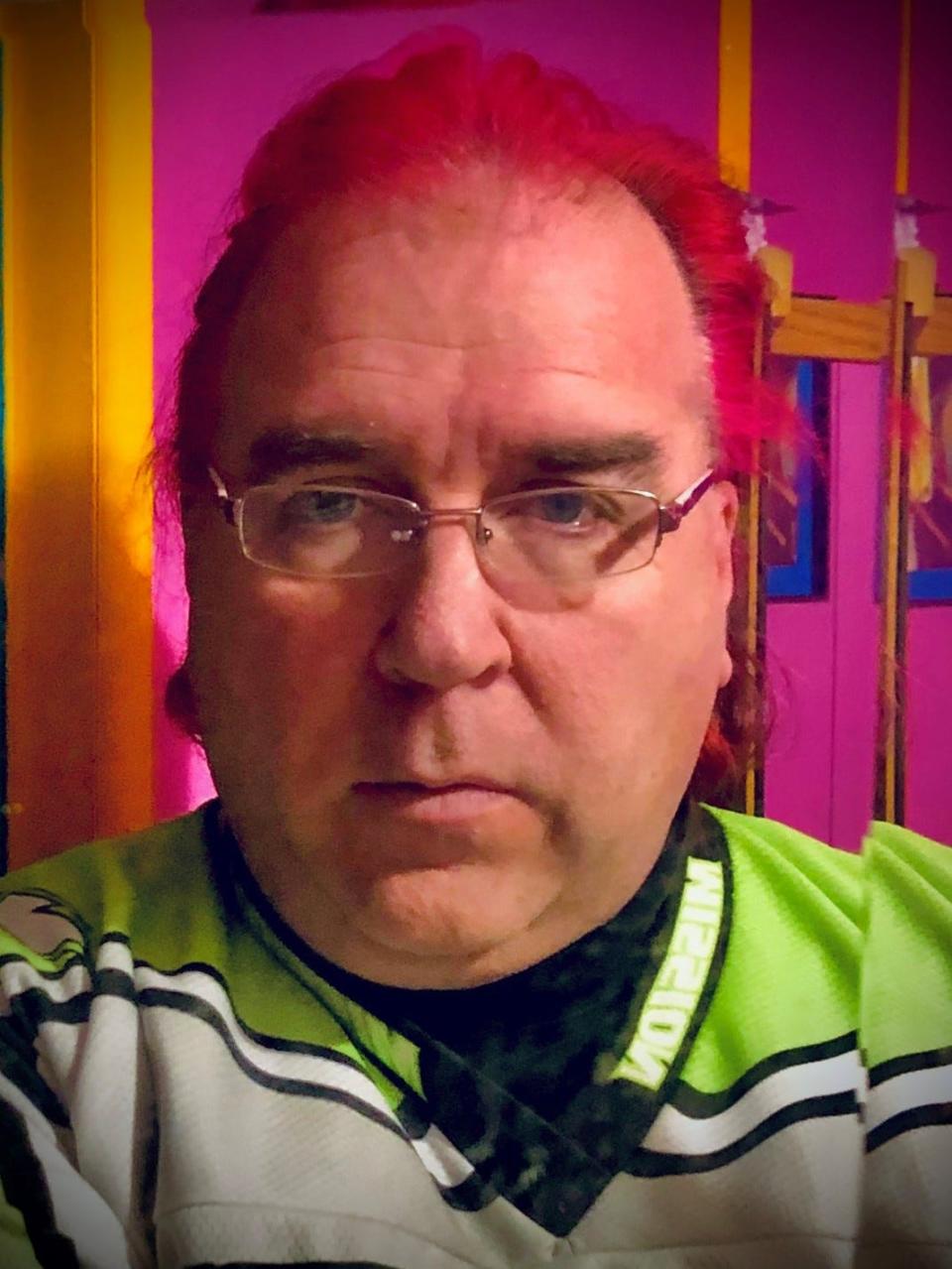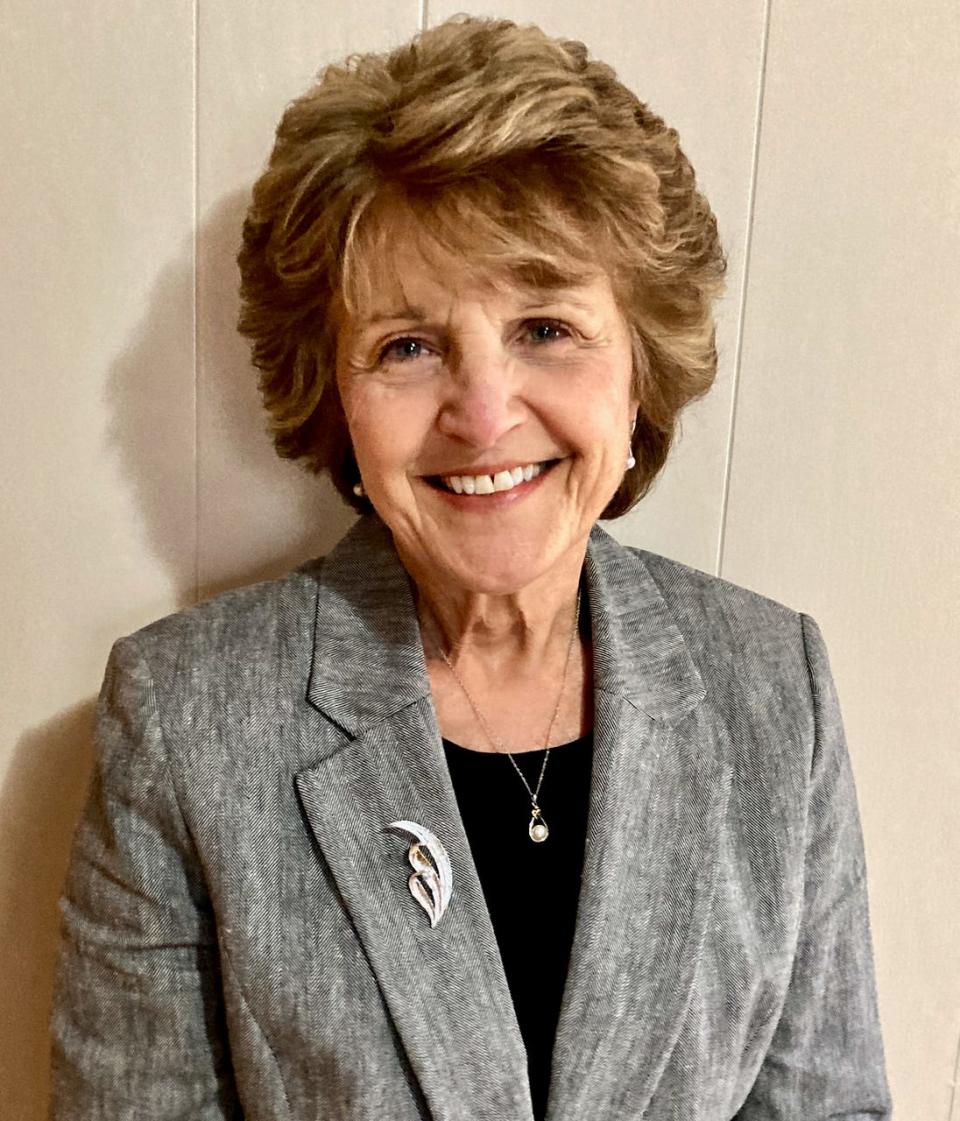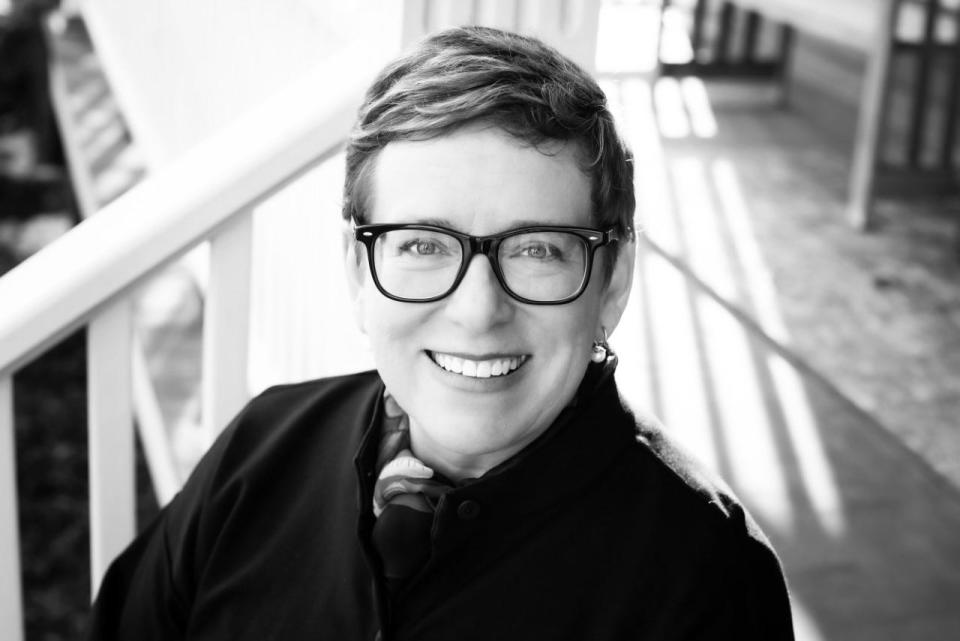Looming budget crisis and enrollment are top of mind for Green Bay School Board candidates
GREEN BAY ― Four candidates are on the ballot for two open seats on the Green Bay School Board in April's election. Board President Laura McCoy is up for reelection and is seeking her third term on the board.
Vice President Dawn Smith is not running again, leaving her seat open for a newcomer. Smith did not respond to requests for comment on why she is not running for another term.
The board oversees the state's fourth largest school district by enrollment with about 19,000 students, over 3,000 employees, a $295 million budget and 42 school buildings. Board members serve three-year terms and receive a $7,500 annual stipend.
More:The Green Bay School Board changed how it pays members. Here's what to know.
More:Green Bay School District announces final candidates for superintendent
There is the potential for the board to feature a father-son duo, with board member Andrew Becker's son Noah running for election.
Lynn Gerlach is also running; she previously served on the Green Bay City council in 2020 but didn't win her reelection last spring.
Paul Boucher is seeking a seat on the board, along with city mayor and alder. He was convicted of lewd and lascivious behavior ― a class A misdemeanor ― in 2011 after a female caseworker reported that he exposed his genitals to her. He was also banned from the University of Wisconsin-Green Bay campus in 2013 because of complaints that he was harassing female students.
Neither of these things prevent Boucher from running or serving on the school board, according to Wisconsin law.
The Press-Gazette asked all candidates to fill out a questionnaire with the same seven questions about funding, achievement, curriculum and issues that are top of mind for them. Responses have been lightly edited for grammar and formatting.
Here's what each of the four candidates said:
Noah Becker

Address: Green Bay
Age: 19
Campaign website: www.votefornoah.com
Current occupation: Retail
Education: Some college
Relevant experience: I served as the main student board representative for the 2021-2022 school year. I have experience with the board’s practices and procedures. Most importantly, I am a recent West High graduate. With my recent boots-on-the-ground experience, I know about the many things that we’re doing well and about the things that need improvement. It is healthy for the school board to have a mix of new leaders and experienced leaders.
Paul Boucher

Address: Green Bay
Age: 56
Campaign website: None
Current occupation: Unemployed social researcher
Education: Bachelor's of science in sociology from UW-Madison.
Relevant experience: I attended both public and private school in the Green Bay Area. I have experience at both public and private universities. I have been a diligent observer of the school system and the conjoined community.
Lynn Gerlach

Address: Green Bay
Age: 73
Campaign website: Lynn Gerlach for Green bay School Board Facebook page
Current occupation: Principal at Tamarack Communication
Education: Bachelor's degree in English and speech from UW-Eau Claire
Relevant experience: I’ve taught in five states, serving as an Army wife and raising my children in diverse communities and schools across seven states. I started in Appleton Public Schools and last taught at Notre Dame Academy, having coached cheerleading, debate, forensics and drama. I led Wisconsin’s Professional Development Certificate program for teachers at UWGB and even hosted a daily TV show in Georgia called "In the Schools." An independent communication consultant, I have served recently on Green Bay’s Common Council.
Laura McCoy (i)

Address: Green Bay
Age: 61
Campaign website: Laura McCoy for Green Bay School Board Facebook page
Current occupation: President of Green Bay School Board
Education: Bachelor's degree in political science from UW-Whitewater
Relevant experience: I am the proud parent of two GBAPS graduates with a record of community service including sitting on multiple nonprofit and governmental committees. I have served two terms on the school board during which we tackled complicated personnel, public health and budgetary challenges. I have represented our district statewide and locally. I take every opportunity to meet with students, families, staff, taxpayers and elected officials to better understand their priorities.
Why are you running for School Board?
Becker: I am running to support students, teachers and families as we work together to raise student achievement. I support our historic schools and am strongly committed to minimizing building closures.
Boucher: I have knowledge and perspective that can be an asset to the board of education.
Gerlach: First, because citizens have asked me to serve. But I trained to teach, and I’ve had the privilege of experiencing education from a broad perspective. Now I have the gift of time to give back.
McCoy: I believe strong public schools are the cornerstone of healthy families, thriving communities and strong economies, and every child deserves to learn and grow in a safe school that meets their needs.
What makes you the best candidate?
Becker: As a recent graduate of West High School, I bring a fresh and unique perspective to the board. I will bring new ideas to the table, and I’m willing to consider creative solutions to tackle the enrollment decline and funding issues. I am committed to hands-on leadership as well. In many cases over the years, board members have not questioned or changed many suggestions from the administration, and I believe the board should take a direct role in more of the decision-making.
Boucher: The vast knowledge that I have accumulated from the community and my independence allows me to see the educational system in a unique light.
Gerlach: There is simply no substitute for experience: as a parent and grandparent of school children; as a trained, licensed teacher in a wide variety of situations; and as an elected participant in local government. As a self-employed independent consultant, a homeowner and local taxpayer, and a founding board member of my neighborhood association, I can now offer the maturity and wisdom that come only with age, along with a commitment to joyfully extend my own learning every day.
McCoy: It's up to the voters to decide who the best candidate is. I have spent the last six years performing my duties with diligence and enthusiasm. I've learned a lot along the way and grown into my role. I currently serve as the president of our board, and in that capacity, I have tried to build productive working relationships with our district staff, my fellow board members and the community. I respect and believe in our students, families and staff and my interactions reflect that.
What do you believe are the top two issues that need to be addressed, and how would you address them, if elected?
Becker: First, the district is facing a serious budget crunch for two reasons: a state funding formula that is unfair to Green Bay and declining enrollment due to population shifts. There will be recommendations to close and consolidate buildings, but before closing any school I would insist on other changes, such as moving central office functions from downtown to open spaces in our school buildings. Second, people have been talking to me a lot about student and teacher safety. We need to have safe, respectful schools and provide the right kind of mental health supports to our students to reduce problematic behaviors and drug abuse.
Boucher: The hostility in this country is a byproduct of the lack of attention to the human side of education. Treating students like cogs in a machine has materialized into a culture of bullying and ignorant naïveté. Human beings have a need for mental stimulation, physical activity and social interaction. Developing student’s creativity and sense of curiosity while being actively engaged in exercise on a consistent basis brings balance to the students life and builds a foundation for their life long journey to succeed. And we need to ensure students are able to have a diet that is balanced and enjoyable.
Gerlach: Recent Green Bay School Board work indicates challenges ahead: Like most school districts, we have a declining school population. Supporting 42 schools, we must best use our resources. That will mean hard decisions that I choose to see as opportunities for new, creative thinking. At the same time, we’ll have a new superintendent, learning the ropes in Wisconsin’s third largest school system. That will require board support and oversight for faculty and staff as well as for the superintendent. And, as our community grows in diversity and complexity, we have the wonderful challenge of adapting our services for each individual child. I will give such challenges the time, research and energy required, as I demonstrated on City Council. (Note: Green Bay Area Public Schools is the state's fourth largest school system, according to the Department of Public Instruction's most recent enrollment data.)
McCoy: Our first priority should be addressing literacy. This is a challenge here and nationwide and is foundational to the success of our students. They deserve action, and I will be focusing on this in the coming months. The next priority is our budget. Chronic underfunding by our Legislature has caused a statewide crisis. Our district is taking aggressive steps to cut back in any way that does not negatively impact students but, even with those measures, we will have to take further action. The impact of sharply declining birthrates, legislative inaction on revenue limits and per-pupil dollars and sharp increases in the cost of living cannot be ignored. We must find a way to serve our students and respect the investment of taxpayers.
More:How much of your Brown County tax dollars are going to private schools? More and more every year.
Help Us Report:Fill out this quick survey and tell us about your experiences with reading in Wisconsin's education system.
If you could change one thing about your district it would be ______.
Becker: The complexity of our district. While there are some positives about being a large district, the size of the district can make it very hard for families to navigate the system. I believe in streamlining the levels of administration so families have fewer layers to work through when addressing concerns, and making sure that important decisions are made with the input of parents and teachers—the people closest to our kids.
Boucher: We educate the children to be great community members. We should develop their sense of community in athletics. By engaging with the community to attend events and develop school spirit, we will be achieving our goals of community now and in to the future.
Gerlach: Resistance to change: The Green Bay area has been, until recently, homogeneous and consistent. Had I not been forced to move constantly, experiencing diversity and change, I would also fear the transformations afoot. But I’ve been given opportunities to live and work in 20+ communities, returning to the one that is the very best! And I’m eager to share the gifts of greater Green Bay, including its schools, with all people. I wish I could allay the fears and frustrations I witness.
McCoy: I would love to see the sometimes negative public perception of our district actually match the reality. It is a tough time to be in public education, but I love our district, and I am proud of the important work we are doing. If you walk into any of our schools on any given day, you will see an army of dedicated educators serving and supporting students who come to us with often complex nonacademic needs. Our schools are happy, healthy, safe places, and I would love our community to know that.
What are your thoughts on how the topic of racism and its history in the United States should be taught in public schools?
Becker: The answer is very straightforward. We need to continue to teach history as it happened, just like we have been doing. By courageously teaching “the good, the bad, and the ugly” from our past, our students will be able to think critically about where our society has made progress and where we still have a long way to go.
Boucher: History is fascinating, when taught correctly. If we are not accurate and honest about the reality of the past, we are doomed to repeat the mistakes.
Gerlach: Fear is best tempered by knowledge. When on City Council, I heard a warning about Critical Race Theory linked to our own public schools. My response? Learn what they’re talking about. I’ve devoted hours to research on CRT, and, as intellectually challenging as it’s been, I’ve developed an understanding of the recent focus on racism and our history. Only through level-headed, open-hearted dialogue will we make progress. I’m eager to listen. History is fact. This is an issue of heart, not head.
McCoy: I favor an honest, age-appropriate teaching of our nation's history. We shouldn't underestimate our students' ability to understand complexity and nuance when exploring difficult topics, and students of color deserve to see themselves reflected in our nation's story. As a School Board member, I trust our educators to teach sensitive topics around race.
Do you have areas of concern about student achievement in your district? What are your specific suggestions for improvement?
Becker: We need to continually innovate and look for methods to improve student achievement and lower the achievement gap. It is well-known that students lost ground during the pandemic, and we need to get them caught up. It is critical to provide lower class sizes for struggling students and to continue to attract and retain high-quality teachers. Student achievement is more than a report generated in Madison, and we need to take advantage of the size of the district to offer unique opportunities.
Boucher: The best colleges in the country have great athletic programs. Diversity in achievement of students, creates an optimism that permeates beyond the classroom. We need to spend more money on athletics and athletic facilities; this raises the roof on students perceived limitations.
Gerlach: I do have concerns. I’ve carefully read the district’s latest annual report card, understanding that 15% of our students have special needs, some are without homes, we have diverse literacy needs, and COVID dramatically reduced achievement for a year. We need to restore funding to our public schools. I’m happy to pay my property taxes to live in this great city, but I want the public-school portion to come back to Green Bay Area Public Schools.
McCoy: Student achievement is always a priority. Like other districts around the country, our district is struggling with the lasting effects of the pandemic, and we need to understand and acknowledge that our students, families and staff are still healing. Addressing our literacy concerns, continuing to expand our specialized programming and strengthening our community partnerships are all vital components in addressing student achievement.
More:Green Bay Schools passed a $92.6M referendum. Here's what it has spent money on so far.
What are you thoughts about the state of public school funding in Wisconsin?
Becker: The formula at the state level is not fair to Green Bay students or taxpayers. Green Bay’s state aid amount was set at a low level in the 1990s. This has put us at a disadvantage versus other districts that were spending more at that time. The state has failed to account for the reality of inflation and rather than contribute to education, it is forcing districts to spend COVID grant money to balance their budgets.
Boucher: Is there a better investment than education? Women who are educated are much less likely to suffer domestic abuse and their children learn from their experiences.
Gerlach: District-wide support to help every child achieve his or her potential is the key to future success for the Green Bay area. Taxpayer dollars should support public schools, and public schools should be the best option for the greatest number of children. If we’d continued to fund our public schools as we used to, we’d not hear the cry for “alternatives.” Diverting tax dollars away from our public schools is politically motivated and short-sighted. Fund our schools to fund our community’s future.
McCoy: Due to chronic underfunding, districts across the state are forced to raise money by referendum. This approach creates uncertainty, leads to inequitable resource allocation and discourages workforce and economic development. Our community has a long history of supporting public education, and I am grateful. A better solution would be for our state Legislature to fix the broken public education funding system. All districts and students would benefit from those changes.
Danielle DuClos is a Report for America corps member who covers K-12 education for the Green Bay Press-Gazette. Contact her at dduclos@gannett.com. Follow on Twitter @danielle_duclos. You can directly support her work with a tax-deductible donation at GreenBayPressGazette.com/RFA or by check made out to The GroundTruth Project with subject line Report for America Green Bay Press Gazette Campaign. Address: The GroundTruth Project, Lockbox Services, 9450 SW Gemini Dr, PMB 46837, Beaverton, Oregon 97008-7105.
This article originally appeared on Green Bay Press-Gazette: Q&A: Here are Green Bay School Board candidates' top priorities

